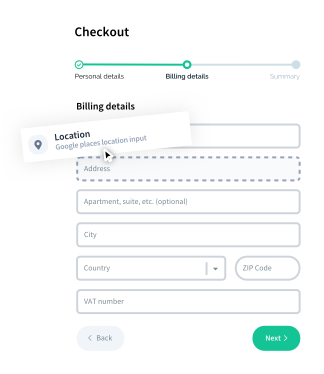Expressions
Configure the opt-in expressions feature in Vueform Builder.
Prerequisites:
@vueform/vueform1.13.0@vueform/builder:1.11.0
To learn more about how expressions work, check out the Vueform expressions documentation.
Enabling Expressions
To enable expressions in the builder, add the following to your builder.config.js:
// builder.config.js
import { defineConfig } from '@vueform/builder'
export default defineConfig({
expressions: {
enabled: true,
},
})If you're using the simple preset, it's recommended to also enable the names option so element names are visible—this helps when referencing them in expressions:
// builder.config.js
import { defineConfig } from '@vueform/builder'
import simple from '@vueform/builder/presets/simple'
export default defineConfig({
preset: simple,
names: true,
expressions: {
enabled: true,
},
})Once enabled, expressions can be used:
- as expression values in
text-like inputs andhiddenfields - in the
contentofstaticelements (like headings or paragraphs) - inside conditions
To see it in action, visit the Developer Demo. Drag in a Text input, then check the Data section in the config panel—there you'll find the 'Use expression value' option.
Adding Custom Functions and Constants
You can extend the expression engine with your own functions and constants by adding them to vueform.config.js. Learn more in the Vueform docs.
Once registered, these will automatically show up in the Expression cheat sheet within the config panel.
You can also define helper descriptions for them in builder.config.js. These can either be plain strings or reference a translation tag in the current builderLocale:
// builder.config.js
import { defineConfig } from '@vueform/builder'
export default defineConfig({
expressions: {
enabled: true,
/**
* The helper texts to display for custom `functions` and `consts`
* registered in `vueform.config.js` under `expression`. They can
* contain translation tags that will be automatically resolved to
* the current `builderLocale`.
*/
helpers: {
MY_FUNC: {
description: 'This function is...',
params: [
{
value: 'value1', // the display name of the param
description: 'This param is...',
},
{
value: '[value2, ...]', // use this convention for optional spread-like params
optional: true, // whether the param is optional
description: 'This param is...',
}
]
},
MY_CONST: {
description: 'my_tag_to_my_const_description', // using a `builderLocale` tag
},
},
},
})

